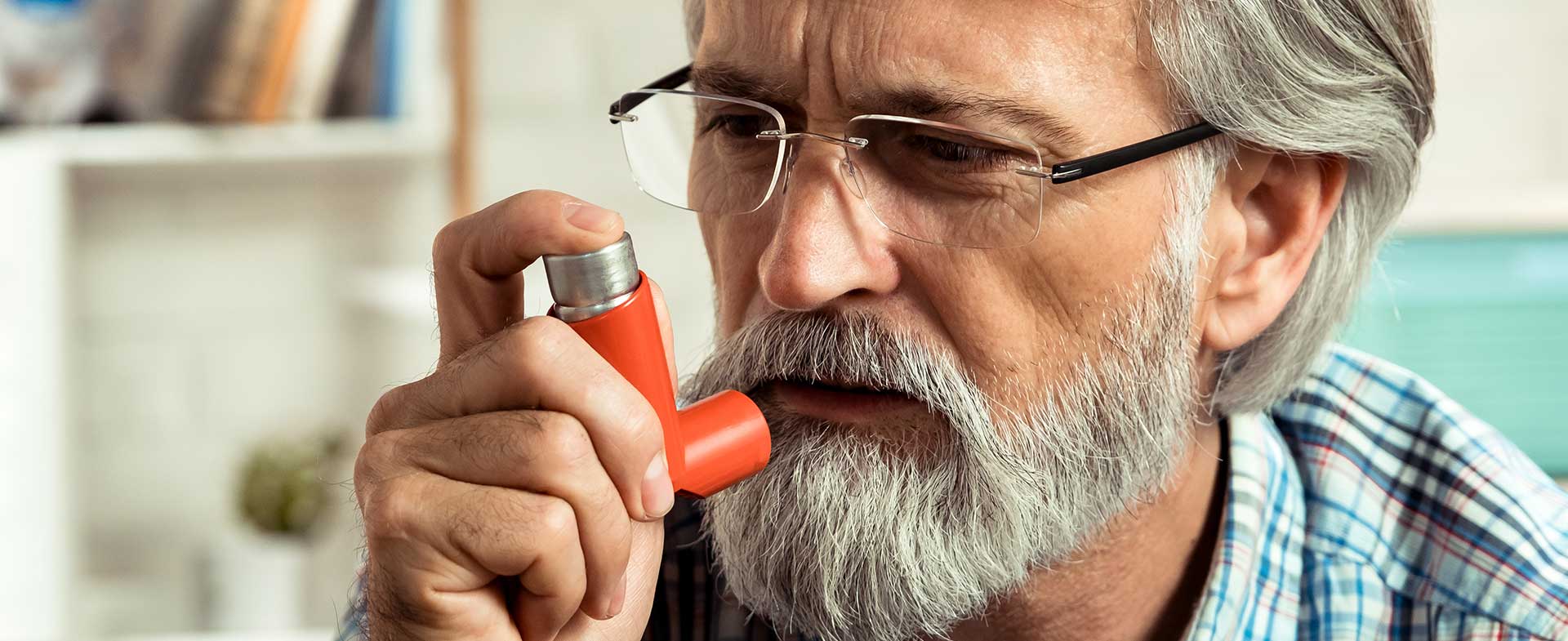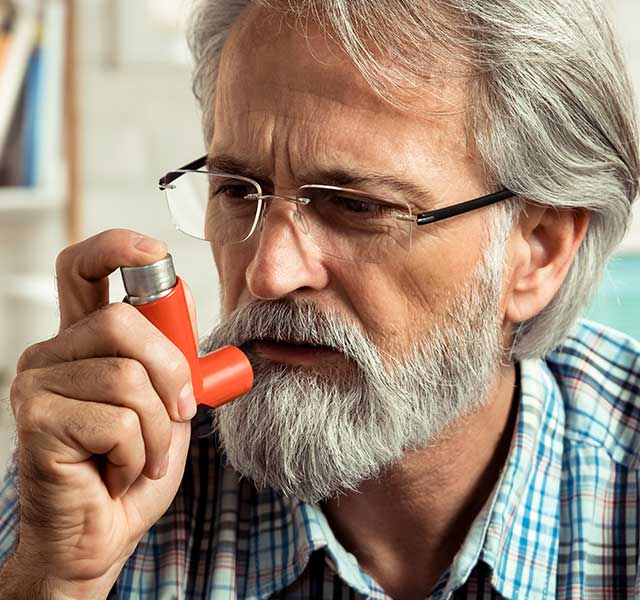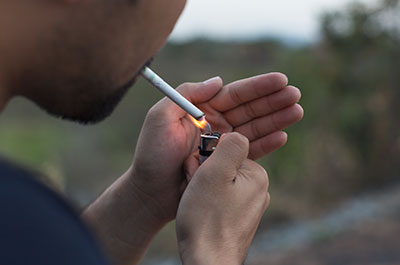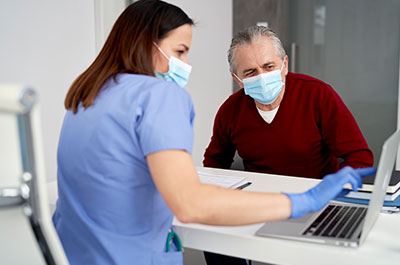Chronic obstructive pulmonary disease (COPD) is a chronic condition that affects nearly 16 million people in the United States. COPD, which includes emphysema and chronic bronchitis, is characterized by a loss of lung capacity, meaning there isn’t as much room in your lungs for oxygen.
“I describe it to my patients like this: the air space in your lungs is like clusters of grapes. With COPD, they turn from clusters of grapes to clusters of tangerines, which means you lose surface area to take in oxygen,” says Avi Cohen, M.D., a pulmonologist at Henry Ford Health.
Here, Dr. Cohen answers common questions people have about the condition.
Q: What causes COPD?
Dr. Cohen: In the U.S., COPD is almost entirely caused by a significant smoking history. That means those who have smoked a pack a day for 20 years.
It is possible to get COPD from secondhand smoke. This usually happens with adults whose spouse smokes, or with someone they are around for a significant amount of time. Also, ongoing exposure to particulates, like when someone works in a certain kind of factory, can contribute to COPD. There are a few very rare inherited disorders that can cause it.
Q. How is COPD diagnosed?
Dr. Cohen: Aside from symptoms, it’s diagnosed using a pulmonary function test, which measures how much air gets stuck in the lungs and how much air you can move in and out of your lungs.
Q: What are symptoms of COPD?
Dr. Cohen: Some of the most common symptoms are a cough that won’t go away and increased coughing or shortness of breath with activity. These symptoms usually reveal themselves in the middle stage of the disease.
With COPD, there are no symptoms early on. But if a person has risk factors for COPD and is concerned, it is completely reasonable for them to talk to their doctor about getting a pulmonary function test even if they aren’t experiencing symptoms.
Q: When the doctor listens to your lungs, can they hear signs of COPD?
Dr. Cohen: No. The only changes in the way the lung sounds come very late in the disease.
Q: What happens during a pulmonary function test?
Dr. Cohen: You blow into a tube, which measures the amount of air that stays in the lungs and the amount of air that can move through the lungs in a certain period of time. This data is then used to determine if your lungs work as they should. It takes about half an hour.
Q: Can something be done to stop COPD once it is diagnosed?
Dr. Cohen: First of all, it’s important to know that everyone loses lung function as they get older. Regarding COPD, if we can diagnose it early, we can slow the loss of lung tissue with medication, so it’s important to talk to your doctor about these symptoms as soon as they start. We have very good medications - inhalers - that can prevent complications and delay worsening of the disease.
Q: How effective are inhalers?
Dr. Cohen: It’s important to use an inhaler correctly – and most people don’t. This means they are not getting the medication (or enough of the medication) into their lungs. They think the medication doesn’t work or not working as well as it could.
At Henry Ford, we have an educational program where we train all of our medical assistants and nurses in primary care offices on the proper use of an inhaler. We also teach them how to notice if a patient has the wrong inhaler. For instance, if someone has arthritis, they may need a different type of delivery system. There are many videos posted online by the manufacturers of the inhalers that show proper use as well. We have these available in our clinics and online.
Q. Are there other ways someone can help manage COPD?
Dr. Cohen: Those with COPD have increased susceptibility to upper respiratory illnesses such as the flu, COVID and pneumonia, so it’s important to stay up to date on your vaccinations.

There are also pulmonary rehabilitation programs, which help you maintain your activity level. Starting treatment early and maintaining physical activity will help you manage COPD more effectively.
If you don’t take deep breaths – which occurs during cardiovascular exercise like walking, running, bicycling, swimming and water aerobics – the areas of your lungs that don’t receive oxygen will stop getting blood flow. That will make it difficult to exchange gasses like oxygen and carbon dioxide. Eventually you will have areas of the lungs not well circulated that you could have benefited from, so cardiovascular exercise is important.
Q: Is it too late to quit smoking?
Dr. Cohen: No. Stopping smoking can really change your health for the better. Even if you have COPD, smoking cessation can prevent your lungs from getting worse. It makes it easier to breathe, lessens coughing, chest tightness and inflammation. Not smoking can actually change how COPD affects you. One of the only proven ways to make COPD better is to quit smoking. It slows deteriorating lung function, eases breathing problems and improves your overall health.
Reviewed by Avi Cohen, M.D., a pulmonologist who sees patients at Henry Ford Medical Center - Taylor.



